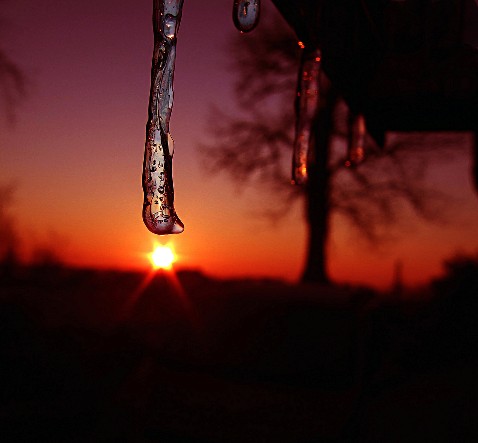Nine Days
/The two of them met for a brief moment. One of them was alive, nine days old, seven pounds, four ounces, and still under the lethargic haze of infancy. One of them was dead, four hours old, seven pounds, twelve ounces, and still warm from the womb, from the closeness of working organs and a rapid heartbeat. The dead one was lifted in front of the live one, a surreal sight if there ever was such a thing. She was going to be your best friend, the mother whispered. It was hello and goodbye in the same minute.
They were meant for each other, our two girls, Lyla and Margot, born nine days apart to best friends who live on the same street.
Long before children were on the immediate radar, the four of us dreamed of a scenario where our kids grew up together, close in age and close in proximity. We imagined our babies crawling around together, our toddlers fighting over toys, our pre-schoolers trading sentences. It's only natural, of course, for two couples to wish the sort of closeness between their kids as they share themselves.
The mothers navigated the frightening waters of middle school together, and then high school and then University. The fathers own a business together. We have backpacked through three continents, riding crammed busses and jumping off bridges and sleeping in cars along the interstate. And somehow, despite living in different parts of the world for the better part of six years, our friendship remained steadfast.
And then one day they decided to move across the country, straight into our neighborhood. Then they fell pregnant. It was July when they told us, on a blisteringly hot afternoon.
Almost incredulously, ironically, we conceived Margot on the same blistering day we found out they were pregnant with Lyla. One tiny miracle created out of knowledge of the other. The women who became fast friends at the age of twelve, who have known each other for nearly two decades, were just five weeks apart. The stars were aligning.

In those early weeks, those early months after Margot died, it was hard to even imagine what we needed from our family and friends. It was shock and awe, the inability to focus, night time meltdowns, a mountain of anguish. Friends and family came and went, supporting and helping and listening in any way they can. But mostly we just tried to survive each day, one long minute at a time.
And then, suddenly, without notice, it felt like we were all alone in our grief, as if the veil of sadness had been lifted for all but us. It’s all fine and understandable, but the longing for wholeness became a desperation, to be able to share with someone our whole selves, both the anguish and the joy, however unbalanced these emotions were in our early grief. I found myself fracturing, turning into a splintered version of myself. I would smile and nod and deflect questions and give the world a sad, but more or less coping, version of myself. I longed to be my whole self, with more than just my partner. If we couldn’t share the aching burden of our missing child with friends, how on earth could we share any joy we found out of life?
But there is Brooke, mother to Lyla, friend since middle school, standing with us, kneeling with us, walking with us, crying with us, never afraid of our grief, never afraid to talk about Margot. She asks questions and then asks more questions, always wanting to share in our pain as deeply as she can. When a group of us are at a party, with babies everywhere, it is Brooke who talks about missing Margot, it is Brooke who asks what it feels like. Whenever I post a new vulnerable blog about our grief, it is Brooke who talks about it. She has abided with us, without a timeline, without expectations. And what is most astonishing, is that she has done all of this while in the midst of mothering a child for the first time. If there have been sleepless nights or breastfeeding issues or colds or exhaustion or hard days or figuring out the right bottle or any of those new parent realities, we never hear about them. And the love, the sheer perfect love of a child, that normally oozes out of a new parent, has been miraculously toned down around us. Her abiding grace, under such difficult circumstances, is perhaps the most selfless act I have encountered in my lifetime.
Nearly ten months have passed since our babies passed by one another. For a long time, it was hard to even look at Lyla, the most physical reminder of my Margot. The smiling, the giggles, the sitting up, the pure baby charm. Each little milestone was so acutely felt. But somehow through the months of abiding with Brooke and her husband, through the inevitable time that has passed, I can smile at Lyla now, hold her hand, watch her laugh. I can ask about her. She has become integrated into my pain, fused with it. She is part of the missing and she is part of the remembering. But it is not too bitter. It is sweet. And somedays I wonder, when the rest of the world has forgotten my darling girl, when only her mother and I really miss her, will Lyla be like a marker in time, a beautiful reminder of our little girl, gone for so long?
Were there any children born around you when your child died? How does it feel to watch them grow up? How has your relationship with the parents changed? Are you able to be around the child, or is it too painful? Has this changed with time?




